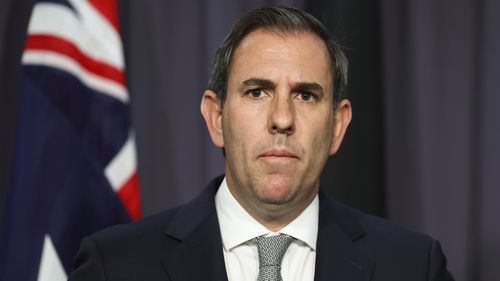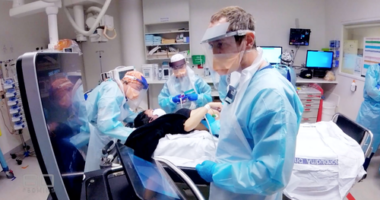Share this @internewscast.com
The federal government has unveiled significant revisions to its superannuation tax strategy. Key among these is the abandonment of a planned tax on unrealised gains and the indexing of a $3 million threshold, which otherwise could have impacted a vast number of Australian workers.
Treasurer Jim Chalmers highlighted that the government plans to increase the low-income superannuation tax offset (LISTO) from $310 to $810, starting July 1, 2027. Additionally, the income eligibility for this offset will rise from $37,000 to $47,000.
Chalmers said the change was a part of a plan to “help low-income workers earn more, keep more of what they earn and retire with more too”.

“This initiative aims to secure a better retirement for 1.3 million Australians, about 60 percent of whom are women. The change will result in 3.1 million Australians qualifying for LISTO,” he stated.
“Through this adjustment, low-income earners will benefit from a more equitable tax concession on their superannuation contributions, in sync with the Government’s third round of tax reductions set for 2027.”
“It will benefit all workers with incomes between $28,000 and $45,000, with an average increase in the LISTO payment of $410.
“These workers could receive a potential benefit at retirement of around $15,000 depending on an individual’s income over their career.”
Chalmers has reconsidered two contentious elements of the policy by indexing the $3 million threshold, introducing a $10 million threshold (subject to indexing), and choosing to tax only realised gains.
The original $3 million threshold, as planned, would not have been indexed, which would have captured more people in the tax over time.
The original proposal sought to tax unrealised gains, such as the appreciation of a property’s value, even if the asset remained unsold and not subject to capital gains tax.
“For earnings on super balances between $3 million and $10 million, the rate remains 30 per cent,” he said.
“The rate for over $10 million becomes 40 per cent.
“This is still a concessional tax arrangement but it’s better targeted.”
The changes will come into effect from July 1 in 2026.
Mary Delahunty, CEO of superannuation peak body ASFA, welcomed the changes.
“It’s vital that the super system is equitable and sustainable, and the changes proposed today by the treasurer are important moves to achieving those goals,” Delahunty said.
“The proposed changes to tax concessions on earnings in accounts with more than $3 million and $10 million will require Australia’s superannuation funds to do extra work, but we will work with treasury and the Australian Tax Office on behalf of the sector to make sure the changes are smooth and achievable for our member funds.
“We look forward to taking part in treasury’s consultations on behalf of the sector, to ensure these proposals for a fairer super system are enacted.”












